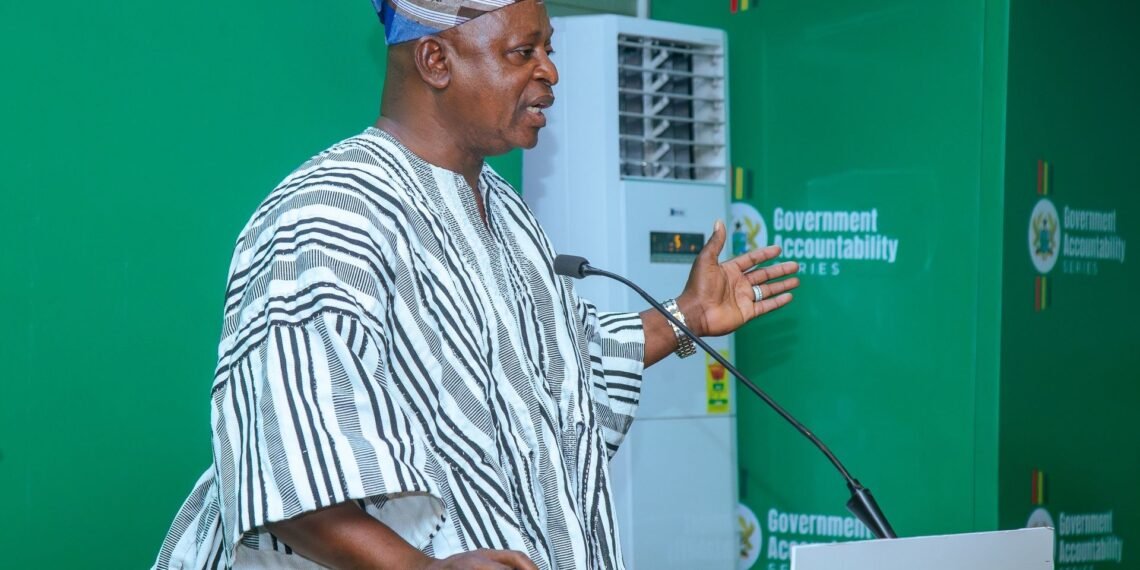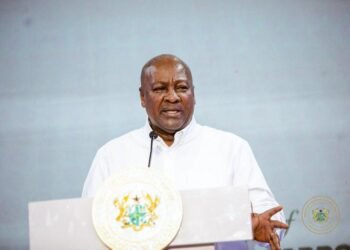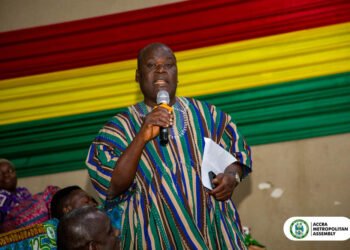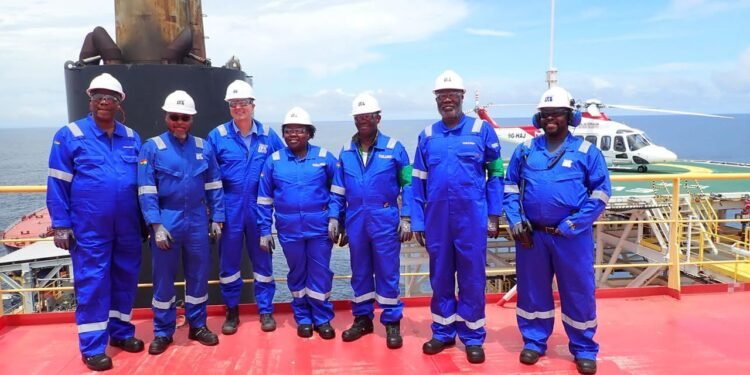The Minister for Transport, Hon. Joseph Bukari Nikpe, has outlined an ambitious vision to reshape Ghana’s transport landscape, placing strong emphasis on rail as the country seeks to build an integrated, multimodal system to ease road congestion, enhance trade, and facilitate tourism.
Speaking in a media interview, the Minister reaffirmed the government’s commitment to a seamless transport framework that connects road, rail, aviation, and water transport into one efficient network.
Responding to a question on his vision for the Ministry, Hon. Nikpe stressed that his mission aligns with that of President John Dramani Mahama’s administration, which prioritizes safe, affordable, and efficient transport for Ghanaians.
“Our aim is to have that kind of integrated multi-purpose motor transport that will be able to ease congestion on our roads, that will be able to facilitate trade and tourism, and that will be efficient and effective in the daily service delivery to our people”.
Minister for Transport, Hon. Joseph Bukari Nikpe
He acknowledged the historical dominance of road transport in Ghana’s development, describing it as both the “backbone” and a challenge due to overreliance. “Over the years, roads have been our backbone, the backbone to our economy, and that is because it is the primary mode of transport that we have over-relied on to the detriment or to the neglect of the other modes,” he noted.
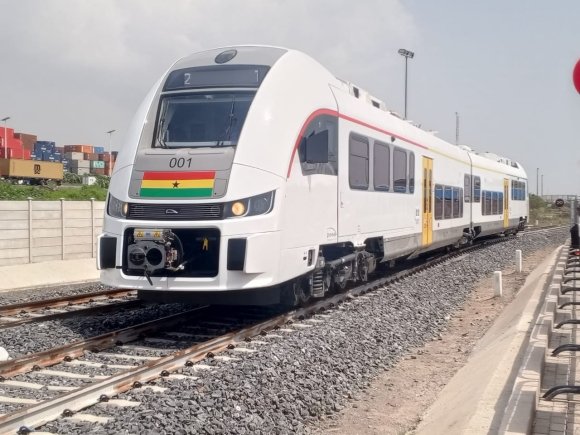
Vision for Integration
The new vision, he said, is to integrate the four modes of transport in a way that allows seamless mobility for citizens and businesses. Highlighting the unique advantages of each mode, Hon. Nikpe stressed that rail, in particular, must be revived as the bedrock of the new transport system.
“Rail is the way to go: rail used to be one of the most effective means of travel in those days. But for long neglect, the rail system is not that effective and we have a master plan on rail transport”.
Minister for Transport, Hon. Joseph Bukari Nikpe
According to him, the rail master plan focuses on three main corridors – Western, Eastern, and Central – with the Western Corridor taking priority due to its economic significance.
“Our emphasis is on the Western because of the kind of mineral resources we have and the companies that are mining in the Western region. You know the cost involved in the rail system, and so you will need an investment that will bring returns. We are putting much emphasis on the Western”.
Minister for Transport, Hon. Joseph Bukari Nikpe
He disclosed that although contractors previously abandoned sites along the Takoradi-Kumasi Western line, negotiations had enabled some to resume work. The Ministry, he assured, was committed to sustaining the contractors and ensuring steady progress toward completion.
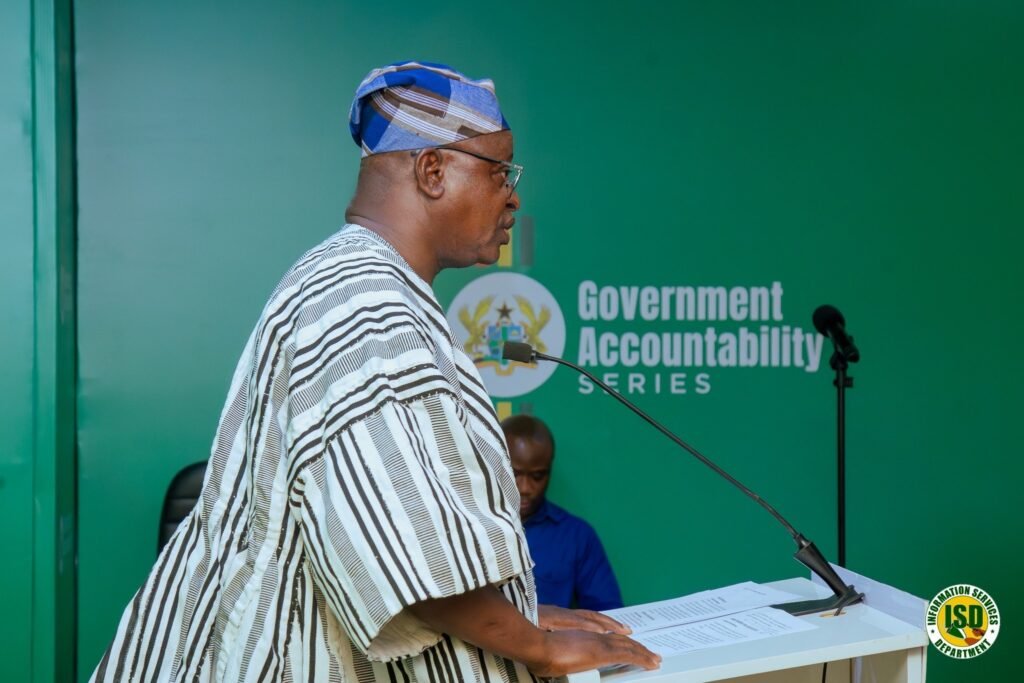
Eastern Corridor
The Minister also touched on the Eastern Corridor, which many analysts argue offers the greatest opportunity for integration, combining the Tema Port, Mpakadan rail, Volta Lake transport, and Tamale airport to facilitate trade with the Sahel region. Hon. Nikpe agreed that both Eastern and Western lines serve multimodal purposes.
“If you take the Eastern, that is from the Tema port through Mpakadan to Buipe, it’s also a multimodal system, so that if you go with the rail to Mpakadan, then you use the Volta Lake transport to Buipe, and then you use road transport from Buipe to Tamale to our landlocked countries, Burkina Faso, Mali, and Niger. And so, all of them come with the same purpose. What we need now is the needed resources”.
Minister for Transport, Hon. Joseph Bukari Nikpe
On financing, the Minister disclosed that the government is exploring multiple avenues, including Build-Operate-Transfer (BOT) arrangements and private sector participation.
“Assuming you are an investor in the private sector, you can come in to invest with us. But we are also looking at other alternative systems of arrangement in raising funds,” he said, while adding that formal announcements would be made once discussions were finalized.
For Hon. Nikpe, the vision is clear: Ghana must move away from its overdependence on roads to embrace a balanced, multimodal transport system that connects the nation and enhances its competitiveness. “Rail is the way to go,” he emphasized, underscoring his belief that the revival of railways will unlock a new era of economic growth and social progress for the country
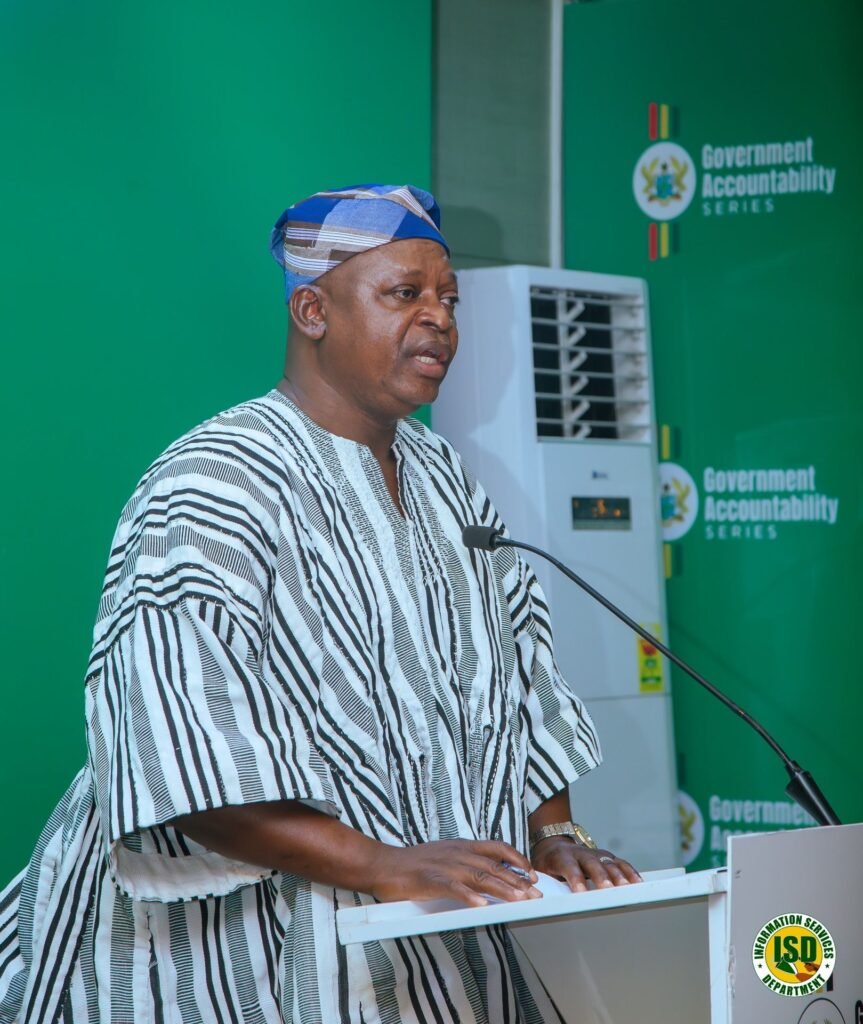
Resolving Railway Labour Unrest
The Minister also addressed ongoing labor concerns among railway workers, many of whom have complained about unpaid salary arrears and threatened industrial action. He admitted that the collapse of the rail system had left the workers stranded.
“The company was run down, and so virtually there’s no activity going on. So they are supposed to work, generate income, pay themselves, and pay dividends to the state. Now that the rail is not functioning, meaning there’s no work for them. That is why I have that kind of feeling for them”.
Minister for Transport, Hon. Joseph Bukari Nikpe
Hon. Nikpe assured the workers that the Ministry had engaged with the Ministry of Finance and set up a three-member committee to raise funds internally to cover part of their payments. “We feel their pain and we will have to speed up our processes in getting their payments for them,” he emphasized.
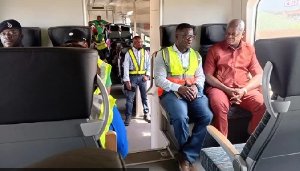
On the recent symbolic journey of the Tema-Mpakadan rail line, the Minister described the experience as both smooth and fast, underscoring the importance of rail in reducing road congestion.
He also confirmed that the new line would serve both passengers and cargo, though initial operations would keep heavy cargo separate to preserve the refurbished cabins. “This is a system that has no traffic that will slow your speed till you get to your destination. So, it is one of the quickest and fastest mode of transport,” he added.



